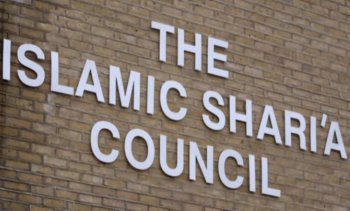NSS welcomes Home Office decision not to regulate sharia ‘courts’
Posted: Thu, 1st Feb 2018
The National Secular Society has welcomed the Home Office's rejection of proposals to regulate sharia 'courts', which were made in an official review published today.
The review, which was chaired by Islamic theologian Prof Mona Siddiqui, proposed the state creating a body which would "design a system of self-regulation of sharia councils, including a code of practice". The body would include sharia council panel members and family lawyers, and could be used to monitor and audit compliance with the code of practice.
The Home Office said it would "not be taking forward the review's recommendation to regulate sharia councils".
"Sharia law has no jurisdiction in the UK and we would not facilitate or endorse regulation, which could present councils as an alternative to UK laws.
"In Britain, we have a long tradition of freedom of worship and religious tolerance, where many people of different faiths follow religious codes and practices, and benefit from their guidance. The Government has no intention of changing this position."
Stephen Evans, the NSS's CEO, said regulation risked "being a halfway house towards sharia becoming de-facto law".
"The Home Office is quite right to reject this proposal out of hand. Regulation of so-called sharia courts will only lend them legitimacy whilst doing nothing to ensure compatibility with anti-discrimination and human rights law. It will take us further down the road towards a parallel legal system where the rights of British citizens from minority backgrounds are fundamentally undermined."
The review recommended legislative changes to give Islamic marriage the same legal standing as Christian or Jewish marriage. Under one of the most alarming changes proposed by the review, a court could refuse to finalise a civil divorce until an Islamic religious divorce had been obtained. The NSS opposes these suggestions, along with state recognition of religious marriages more broadly.
The review also called for awareness campaigns to inform women in minority communities of their rights. "Cultural change is required within Muslim communities so that communities acknowledge women's rights in civil law, especially in areas of marriage and divorce," it said.
Mr Evans said this was "a sensible approach and one we've long advocated for".
"The state must do all it can to reach out to girls and women from minority communities and inform them of their rights in UK law, and the legal protection that civilly registered marriages provides."
The Home Office said it would carefully consider the review's findings and recommendations, other than on regulation.
One of the four members of the review's panel rejected the recommendation to regulate sharia councils. The unnamed dissenter wrote: "The creation of a state facilitated or endorsed regulation or audit scheme will give legitimacy to the existence of alternative dispute resolution entities in the form of sharia councils. The primary and underlying principle of sharia councils is the application of sharia law. It is questionable whether there is any role for the state to act in this way and in effect give a quasi-legal status to the councils."
The review was commissioned by Theresa May in May 2016, when she was Home Secretary. She said it would look at how sharia was being "misused or exploited", rather than examining whether the teaching itself discriminates against women.
There is no official figure of the number of sharia councils in the UK. The review estimated there were "at least 35" sharia councils in the UK. Almost nine years ago a study by the think tank Civitas estimated that more than 85 sharia bodies were operating in Britain. Parliament has previously heard of a significant network of more informal sharia tribunals, often based in mosques, dealing with issues such as divorce and child custody matters.
Share your story
Secularism isn't just about moral or theoretical arguments, it's about people's real lives. Telling your story can help our campaigns and others in similar situations.


